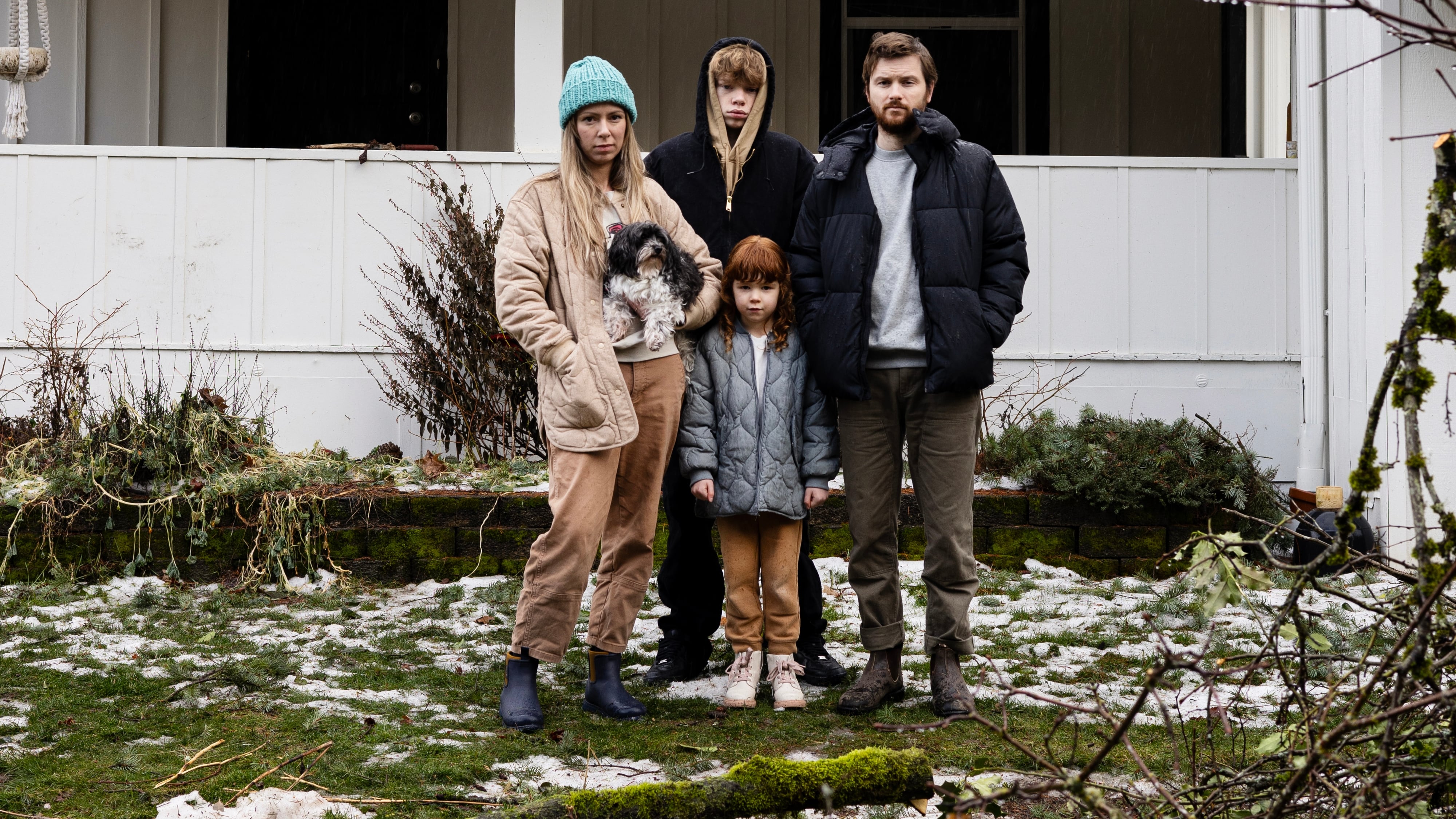In a Thursday morning briefing to the new Portland City Council, city forester Jenn Cairo was questioned by Councilor Steve Novick about how her team responded to incidents during the January 2024 ice storm in which trees crushed homes, and especially one incident in which a family had been denied a removal permit for the very tree that would later fall on their house.
Cairo said she was “not aware of specific cases” in which Portland families requested a removal permit, were denied, and then the tree in question crushed their home.
That was a puzzling reply, given that one such incident was the subject of significant media attention at the time.
As WW first reported Jan. 24, 2024, Sarah and Joel Bond applied in late 2021 to remove a Douglas fir from their backyard. They feared it would crush their home if it fell over in a storm. The city’s Urban Forestry division, which Cairo runs, denied the permit in early 2022, stating in a report that the tree was not dead, dying or dangerous, nor was it located within 10 feet of the home.
On Jan. 14, 2024, two days into a brief but serious ice storm that descended on Portland, the 150-foot tree crushed the Bonds’ home, narrowly missing their 6-year-old daughter.
The following week, Urban Forestry said the Bonds would have to apply for a retroactive removal permit for the tree that had crushed their home. The Bonds would also have to plant a new tree in its place, the city said.
Cairo’s agency also said that if the Bonds wanted to remove a second Douglas fir in their backyard, and did so before obtaining a permit, it would cost the Bonds up to $1,000 a day in fines. (Eight days later, the city announced it would waive all retroactive removal permit fees due to the winter storm.)
It’s been a year since the Bonds' home was crushed by the tree they sought to remove years earlier but which the city said they couldn’t. The Bonds are still displaced and working through insurance to fund repairs, with a likely price tag of $400,000. They won’t move back in for another six months, Sarah Bond recently said.
During the Thursday morning briefing, Councilor Novick pressed the issue with Cairo, referencing news articles about the Bonds' story.
After Cairo said that only 0.02% of the city’s 4.2 million trees were affected by the winter storm (that’s still 840 trees), Novick asked: “Although I realize it wasn’t very many trees, if it’s true that trees people have asked to remove and been denied permission fell on their houses, that’s a pretty big deal to those people. Did that actually happen, or was that an overblown rumor?”
Cairo responded: “That could have happened, I’m not aware of specific cases.”
Late on Thursday, a spokesman for Urban Forestry, Tim Collier, said in a statement to WW that Cairo and her team were in fact aware of the Bonds’ situation, and wrote that Cairo “deeply regrets that her comments to Council during today’s work session lacked the compassion and empathy that Portlanders deserve.”
Cairo said in a statement: “The families and individuals whose homes and properties were damaged during the catastrophic 2024 winter storm have endured profound challenges, and I’m deeply sorry if my remarks caused additional harm. My intention was to provide Council with an understanding of the scale of Portland’s urban forest and the number of trees affected by this storm. However, I recognize my statement failed to adequately acknowledge the significant personal toll experienced by those impacted.”
Novick tells WW that Cairo’s responses to his questions surprised him. “One answer could’ve been, ‘I’m familiar with the incident, I’ve talked to the family, we’ve looked at our criteria and modified them.’ Alternatively, I would’ve expected, ‘I’m familiar with the incident, I’ve talked to the family, I’ve reviewed the permit, and I don’t see how we could change anything without putting thousands of trees at risk.’ That would’ve been a thoughtful response.”
Novick says, “Instead, it kind of sounded like, ‘There’s lots of trees and only a few of them fall on people’s houses.’”
Following his first question, Novick asked if there had been follow-up with families who’d been denied removal permits and whose houses were then damaged by those very same trees. Cairo said: “Where we have city risk claims or other things, there is follow-up on those, yes.”
Novick pressed again.
“But what if there weren’t city risk claims? There were people who said this happened. And did you call the reporter and say, who were these people, what happened?”
At that point, the deputy city administrator who oversees the parks bureau and Urban Forestry chimed in.
“I wasn’t here,” said deputy city administrator Sonia Schmanski. “I have a suspicion that that did not happen. I think your point is well made and well taken. I offered that we could follow up with you and brief or all of these. I’d like to learn more about what we did a year ago and come back to you and share that and get your ideas.”
Schmanski later said during the briefing that the city’s entire tree code, including how it grants permits, would soon soon undergo a complete review.
It will be the first full-blown review of the city’s tree code since 2007.
“Urban Forestry is committed to doing everything possible to prevent similar tragedies in the future while working to grow and preserve the urban forest all Portlanders appreciate and benefit from,” Collier, the parks spokesman, said.
